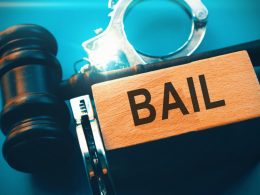The criminal justice system is a pillar of any society, ensuring that the rule of law prevails and everyone is held accountable for their actions. However, this system can only function effectively when all parties involved are committed to fairness and justice. One group that plays an indispensable role in maintaining these values are lawyers. They act as advocates for defendants or victims, ensuring that they receive fair treatment under the law. In this blog post, we will explore the vital role of lawyers in ensuring fair trials and access to justice, as well as some challenges they face in fulfilling this crucial responsibility.
What is the role of lawyers in the criminal justice system?
Lawyers play a crucial role in the criminal justice system. They are responsible for ensuring that their clients receive fair treatment under the law, whether they are defendants or victims. One of the most important tasks of lawyers is to represent their clients in court proceedings, such as trials and hearings.
During these legal proceedings, lawyers must present evidence and make arguments on behalf of their clients. They also have a responsibility to challenge any evidence or testimony presented by the opposing side if it is not relevant or reliable. Lawyers must ensure that all parties involved follow proper legal procedures and adhere to ethical standards.
Aside from representation in court, lawyers also provide counsel to their clients outside of the courtroom setting. This includes advising them on legal matters related to their case, such as plea bargaining options or potential sentences if found guilty.
Lawyers serve as essential advocates for individuals within the criminal justice system. Their role is vital in upholding fairness and ensuring that everyone has access to a just legal process.
How do lawyers ensure fair trials and access to justice?
Lawyers play a vital role in ensuring that every individual has access to justice, regardless of their social status or financial capacity. One way they do this is by providing legal aid services to those who cannot afford them. Through these services, lawyers ensure that everyone has equal representation in court.
Moreover, lawyers ensure fair trials by upholding the rule of law and protecting the rights of their clients. They work tirelessly to gather evidence and thoroughly investigate cases before presenting them in court. Lawyers also cross-examine witnesses and challenge any evidence that may have been obtained improperly.
In addition, lawyers act as advocates for their clients’ interests during all stages of the trial process. They negotiate plea bargains on behalf of defendants and secure reduced sentences whenever possible. Furthermore, when necessary, they file appeals to higher courts if there are errors made during a trial or sentencing.
Lawyers play an essential role in ensuring that individuals receive a fair trial and have access to justice regardless of their financial situation or social status. Their dedication ensures that everyone is treated equally under the law and receives proper representation throughout the entire legal process.
What are some challenges that lawyers face in ensuring fair trials and access to justice?
Despite the crucial role that lawyers play in ensuring fair trials and access to justice, they face several challenges that threaten their effectiveness. One of the primary challenges is inadequate funding for legal aid services. This means that many individuals who can’t afford a lawyer don’t have access to legal representation, which can significantly affect the outcome of their case.
Another challenge is bias within the criminal justice system itself. Lawyers must navigate systemic racism, classism and sexism while trying to ensure their clients receive justice. Additionally, lawyers often struggle with excessive caseloads, leaving them little time to devote adequate attention to each client.
Moreover, some lawyers may lack experience or expertise needed for particular cases especially if dealing with unique situations such as issues relating to technology or human rights violations among others. Language barriers also present an obstacle in ensuring fair trials and access to justice as it may be difficult for non-English speakers or those without interpreters present during proceedings.
Rapidly changing laws require continuous training and development of skills by lawyers around specific areas such as intellectual property law or corporate governance where changes are frequent
These challenges highlight how crucial it is not only for governments but also individuals within society like bar associations and law firms themselves need take proactive measures towards addressing these issues if we want our societies based on fairness and equality before the law
Conclusion
Lawyers play a vital role in ensuring fair trials and access to justice. They serve as the advocates for their clients’ rights and interests while upholding ethical standards that protect the integrity of the legal system.
Despite facing challenges such as inadequate resources, systemic biases, and limited access to legal services for marginalized communities, lawyers remain steadfast in their pursuit of justice.
As individuals who are entrusted with upholding the law, it is crucial that we support lawyers in their efforts to ensure fair trials and access to justice. By doing so, we can strengthen our criminal justice system and promote equity for all members of society.












